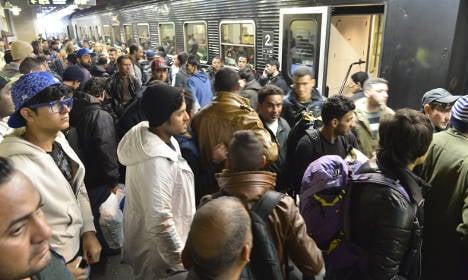The ministers agreed by a large majority to the plan with just four EU members voting against it.
The UN and other international organizations warned it was the “last chance” for increasingly overwhelmed European states to agree on how to cope with the tide of people fleeing conflict in countries like Syria and Afghanistan.
Luxembourg Foreign Minister Jean Asselborn, who was chairing the meeting, said: “We have a text on the table which should deliver an agreement. It is very balanced. I think it will have a good influence on all the delegations so we can reach a result this evening.”
But central and eastern European states strongly resisted plans to force EU member countries to take a share of the new arrivals from front-line nations.
“I want to confirm that both the interior minister and myself… will unequivocally reject any effort to introduce a permanent mechanism of refugee redistribution,” Czech Prime Minister Sobotka told reporters in Prague.
“We also reject the introduction of quotas,” he added.
Romania, the Czech Republic, Slovakia and Hungary voted against accepting mandatory quotas while Finland abstained.
According to the deal agreed by the Commission, which must be ratified by EU leaders at a meeting tomorrow, a total of 4,469 refugees would be relocated to Sweden.
Sweden, which takes in the second-largest number of asylum seekers after Germany, has long supported introducing a mandatory relocation scheme.


 Please whitelist us to continue reading.
Please whitelist us to continue reading.